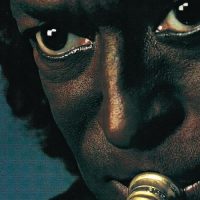Even the most noble of tribute efforts can be sunk by a maudlin sense of care, the feeling that the great works being presented are sacrosanct — rather than living, malleable pieces of art. This album deftly avoids those mistakes.
Credit Ryan Truesdell’s abiding passion for Gil Evans, who would have turned 100 on May 13, 2012, but also his considerable imagination for making the fan-funded Centennial everything a tribute album should be. Truesdell, the first person outside of the Evans family to have full access to his musical archives, has uncovered a series of rare compositions and arrangements — giving the project a fizzy atmosphere of discovery, even for long-time fans.
“The Maids of Cadiz,” for instance, uses not the familiar arrangement from his 1957 Miles Davis colllaboration Miles Ahead, but an earlier version created for the Claude Thornhill Orchestra from seven years before. This was a particularly fruitful area of exploration for Truesdell: Elsewhere, there is also a never-before-heard chart from the Miles Ahead period of “Smoking My Sad Cigarette” — originally done for the late singer Lucy Reed and interpreted here by Kate McGarry. “How About You,” as brightly swinging as it is complex, ranks as perhaps the highlight in the series of newly discovered rare charts from the Thornhill era.
Just as importantly, Truesdell and a group that includes saxophonist Steve Wilson, pianist Frank Kimbrough, bassist Jay Anderson and drummer Lewis Nash manage to capture both the effervescent sophistication of Evans’ early work, but also his late-period interest in a more improvisational feel. Dan Weiss’ bursts of conversational tabla on the opening “Punjab” give way to Kimbrough’s lonely ruminations in “Maids of Cadiz.” The tandem horns wink on “Dancing on a Great Big Rainbow,” only to be subsumed by the urbane complexity of a stirring 19-minute medley of “Waltz,” “Variation on Misery” and “So Long.” “Look to the Rainbow,” initially the title track of a 1965 Astrud Gilberto project, is given an appropriately diaphanous reading.
Maybe the biggest find is “Dancing,” a recently discovered track that Evans had composed for Tommy Dorsey — presented with a stunning specificity here, after Truesdell also uncovered notes from Evans himself on how to rehearse the piece that were addressed to Les Brown in 1951. The medley (a magnum opus moment which links arrangements from Evans’ 1964 album Individualism and 1969’s Blues in Orbit) was found in tact, having been fashioned for a 24-piece band at some point by Evans himself.
- How Deep Cuts on ‘Music From Big Pink’ Underscore the Band’s Triumph - July 31, 2023
- How ‘Islands’ Signaled the Sad End of the Band’s Five-Man Edition - March 15, 2022
- The Band’s ‘Christmas Must Be Tonight’ Remains an Unjustly Overlooked Holiday Classic - December 25, 2016




